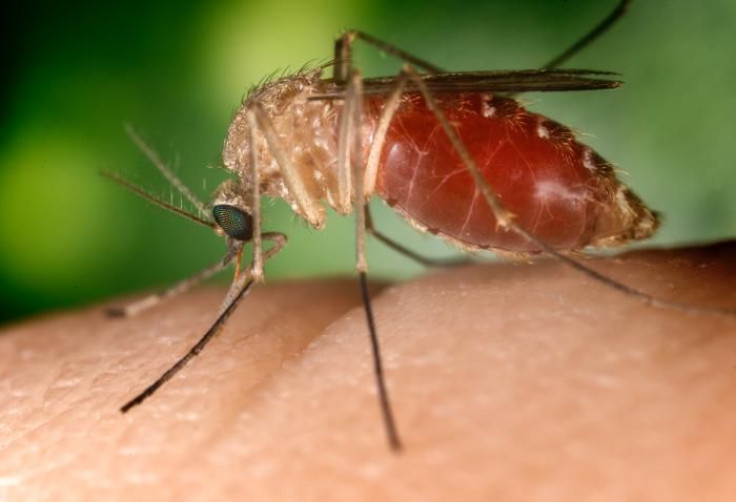West Nile Virus Confirmed In Illinois And Pennsylvania Mosquitoes; Are Other Areas At Risk?

Summer in Illinois and Pennsylvania has kicked off to an ominous start after mosquitoes carrying the West Nile virus were discovered in counties around each state.
According to 90.5 WESA, the Pennsylvania Department of Health (DOH) and the Department of Environmental Protection (DEP) are launching preventative measures in hopes of avoiding a breakout.
Data collected by Pennsylvania's West Nile Virus Control Program show that the West Nile virus made its way into Pennsylvania by 2000. Last year, humans infected with West Nile were reported in 24 of the state's counties.
Director of the Illinois Department of Public Health, Dr. LaMar Hasbrouck also announced the discovery of the state's first West Nile carrying mosquitos of 2013.
"Although we have been seeing a lot of what we call 'nuisance' mosquitoes due to the flooding, those mosquitoes typically do not carry West Nile virus. We are now starting to see Culex mosquitoes, which often do carry disease," Dr. Hasbrouck stated.
"Remember, as we head into the summer months, to protect yourself by wearing insect repellent and taking other precautions."
The West Nile virus, while asymptomatic in most people, could lead to a potentially life-threatening inflammation of the brain. The virus is contracted by humans, dogs, horses, and other animals through mosquito bites. The illness is notoriously hard to diagnose since patients rarely show symptoms pass a fever and mild headache.
Around 30,000 people in the United States have fallen ill due to the West Nile virus since 1999, the Centers for Disease Control and Prevention reports. Last year alone, 48 states, the District of Columbia, and Puerto Rico reported West Nile infections.
DEP representative Amanda Witman said there is no reason for concern yet; however, citizens of Pennsylvania should follow precautionary steps for avoiding transmission. Preventing transmission begins with eliminating standing water, where mosquitoes breed.
"There's a lot of concrete storm water retention basins, things like that that tend to hold water, as opposed to a more rural area that has grasses and ground and not as much pavement and asphalt," Witman explained.
"There's never reason for alarm, but there's always reason to take precaution and do some preventative things around the home."
Helpful tips for avoiding the West Nile virus:
- Wear clothes that cover all parts of the body when entering a mosquito hotbed.
- Avoid small pools of water such as puddles which become breeding grounds for the insects.
- Apply Environmental Protection Agency approved insect repellants.
- Check for signs of a bite after being outside.



























